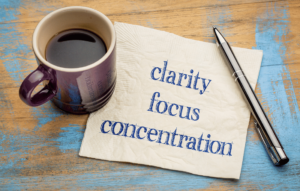In a world that often expects men to be pillars of strength and stoicism, finding an outlet for emotions and thoughts can be challenging if you have not been taught how to do so. The idea of keeping a journal might seem trivial or even somehow effeminate to some, but what if I told you that it could be one of the most powerful tools for cultivating your mental health and overall well-being?
Journaling is not just about jotting down daily events; it’s about unlocking a deeper understanding of yourself, processing emotions, and setting a clear path for your personal development as an individual. For men, who are frequently conditioned to suppress their feelings, journaling offers a private, judgment-free space to explore and express what’s truly going on beneath the surface.
In this blog, we’ll dive into why keeping a journal can be such a game-changer for men. We’ll explore the mental health challenges unique to men, reveal the transformative benefits of journaling, and provide practical tips to help you get started on this journey. By the end, you’ll see that journaling isn’t something to be overlooked — it’s something of a superpower that can actually make you a better man.
The Current State of Men’s Mental Health
In today’s hyper-stimulating world, men are grappling with a silent crisis — one that is casting a growing cloud of darkness over their quality of life. While some strides have been made in mental health awareness, a lot of men continue to seriously struggle with depression, anxiety, and stress in silence. The societal expectation that men should always be strong, stoic, and self-reliant often prevents them from expressing emotions or seeking help when needed.
Men face unique mental health challenges that often go unnoticed. According to the American Psychological Association, men are less likely than women to seek mental health treatment, despite experiencing similar rates of mental health issues. This reluctance is rooted in cultural norms that discourage men from acknowledging vulnerability or emotional distress.
The most common forms of mental distress for men are as follows:
- Depression: Often masked by irritability or anger, depression in men can lead to a range of issues, from strained relationships to diminished work performance.
- Anxiety: Men may experience anxiety related to work, family, and societal pressures, yet often dismiss these feelings, leading to chronic stress.
- Stress/Burnout Cycle: The pressure to be the primary provider and excel in various life roles can result in overwhelming stress and eventual burnout.
The stigma surrounding mental health often exacerbates these challenges. Many men fear being perceived as weak or less masculine if they openly discuss their emotions or mental struggles. This societal expectation to “man up” and handle problems independently can lead to a dangerous cycle of silence and suffering.
The Importance of Emotional Expression for Men
Suppressing emotions is not just harmful; it can be seriously destructive. Studies have shown that men who suppress their emotions are at a higher risk of developing serious mental health issues, including depression and substance abuse disorders.
On the worst end of the spectrum, the statistics on male suicide are astonishing – men currently account for 75-80% of all deaths by suicide. It may seem oversimplified, but the inability to express feelings is where these things begin. As personal relationships are inevitably damaged, one will increasingly be socially isolated, which is one of the most common characteristics of that devastating outcome.
men currently account for 75-80% of all deaths by suicide. It may seem oversimplified, but the inability to express feelings is where these things begin. As personal relationships are inevitably damaged, one will increasingly be socially isolated, which is one of the most common characteristics of that devastating outcome.
This is where journaling comes into play as a transformative tool for men. Journaling provides a private space for men to explore their thoughts and feelings without judgment, without the need for vulnerability in front of their peers, though it often cultivates the ability to do so. It offers a way to break free from societal expectations and connect with one’s emotions on a deeper level.
On a cursory level, keeping a journal offers us:
- A Safe Emotional Outlet: Journaling allows men to articulate their feelings and experiences, helping them to process complex emotions like anger, frustration, and sadness.
- Opening of Barriers: By regularly writing about their thoughts and feelings, men can challenge the internalized belief that vulnerability equates to weakness.
- Building Emotional Resilience and Intelligence: Expressing emotions through writing fosters emotional intelligence and, in turn, strength, offering guys a chance to understand and manage their emotions more effectively.
Again, journaling isn’t just about writing down daily events – it’s a powerful tool for self-reflection and personal growth. It empowers men to better understand themselves, leading to improved emotional regulation, greater empathy, and enhanced relationships. By taking the first step in journaling, men can begin to dismantle the barriers to emotional expression and embark on a journey toward better mental health and overall well-being.
The Specific Benefits of Journaling
Let’s unpack the key benefits of journaling:
 Emotional Intelligence and Self-Awareness
Emotional Intelligence and Self-Awareness
One of the most profound benefits of journaling is its ability to boost emotional intelligence and self-awareness. When you take the time to write about your thoughts and feelings, you gain a deeper understanding of your emotional landscape.
- Understanding Emotions: Journaling helps you identify and articulate your emotions, making it easier to understand why you feel a certain way. This process can lead to better emotional regulation and fewer instances of feeling overwhelmed or out of control.
- Self-Reflection: Regular journaling encourages self-reflection, allowing you to examine your actions, reactions, and decisions. This introspection fosters greater self-awareness, helping you recognize patterns in your behavior and thought processes.
- Improved Relationships: As you become more emotionally intelligent, you will naturally begin to communicate more effectively and empathetically with others, significantly reinforcing both your personal and professional relationships.
Stress Reduction and Mental Clarity
Stress is a common part of life, but how you manage it can make a significant difference in your overall well-being. A lot of times, stress is actually just the buildup of many unprocessed feelings and thoughts. Journaling offers a tool for stress reduction and mental clarity.
- Organizing Thoughts: Writing down your thoughts helps you organize and prioritize them, reducing mental clutter and making it easier to focus on what truly matters.
- Identifying Stressors: By regularly journaling about your experiences and feelings, you can identify recurring stressors in your life. This awareness allows you to develop strategies for managing or eliminating these stressors.
- Mindfulness and Relaxation: Journaling can serve as a form of mindfulness, bringing you into the present moment and providing a sense of relaxation. This practice can lower stress levels and promote a sense of calm and clarity.
Goal Setting and Personal Growth
Journaling also offers us a mechanism for setting and achieving personal and professional goals. By regularly documenting your aspirations, progress, and setbacks, you can stay focused and motivated.
professional goals. By regularly documenting your aspirations, progress, and setbacks, you can stay focused and motivated.
- Setting Goals: Writing down your goals makes them more concrete and tangible. It also provides a record of the intentions you set, which can be revisited, revised, and accounted for much more easily than keeping them in your head.
- Tracking Progress: Journaling allows you to track your progress over time, celebrating your successes and learning from your challenges. This tracking can keep you aligned and committed to your goals.
- Personal Development: By reflecting on your experiences and growth, journaling can inspire continuous personal development. It encourages you to set new goals and strive for constant improvement.
Real-Life Examples of Successful Men Who Journal
These are a few examples of incredibly successful men who have taken up the transformative power of journaling:
-
Richard Branson
- The founder of Virgin Group credits journaling with helping him manage his numerous business ventures and stay organized.
-
Tim Ferriss
- The author and entrepreneur uses journaling as a tool for self-reflection and goal setting, often sharing its benefits with his audience.
-
Ryan Holiday
- The best-selling author and media strategist practices daily journaling to cultivate mindfulness and self-awareness.
These men, among many others, have harnessed the power of journaling to enhance their lives and achieve their goals. By integrating journaling into your routine, you can experience similar benefits and embark on a path of personal growth and self-improvement.
Overcoming Common Barriers to Journaling
Despite its numerous benefits, a lot of guys are hesitant to start journaling due to various misconceptions and perceived barriers. However, understanding and addressing these obstacles can help you embrace journaling as a powerful tool for personal growth and mental health.
Debunking Myths About Journaling
One of the main reasons men avoid journaling is due to misconceptions about the practice. For instance, some believe that journaling is somehow unmanly, associating it with a stereotype that it’s a feminine or trivial activity. In reality, journaling is a tool for self-reflection and personal growth, regardless of your gender. As mentioned above, a lot of men who are likely more successful than most of us, use journaling to enhance their lives and their careers.
tool for self-reflection and personal growth, regardless of your gender. As mentioned above, a lot of men who are likely more successful than most of us, use journaling to enhance their lives and their careers.
Another common myth is that journaling is time-consuming. However, journaling doesn’t have to take up much time at all. Even dedicating just a few minutes a day to jot down thoughts and feelings can provide significant benefits. The key is consistency, not the length of each entry. Additionally, some men might feel they need exceptional writing skills to journal effectively. This is a misconception; journaling is a personal practice, and there’s no right or wrong way to do it. The focus should be on expressing your thoughts and emotions, not on perfect writing.
Finding the Right Style of Journaling
There are many ways to journal, and finding the right style for you can make the practice more enjoyable and sustainable. Here are some popular journaling styles:
Bullet Journaling
- A flexible and customizable system that uses bullet points, symbols, and short sentences to organize tasks, events, and thoughts.
- Ideal for those who prefer structure and organization.
Gratitude Journaling
- Focuses on writing down things you’re grateful for each day, promoting positivity and mindfulness.
- Helps shift focus from negative to positive experiences.
Free Writing
- Involves writing continuously without worrying about grammar, spelling, or structure.
- Encourages the free flow of thoughts and can be cathartic for processing emotions.
Prompt-Based Journaling
- Uses specific questions or prompts to guide your writing.
- Useful for beginners who may not know where to start or for those looking to explore specific topics.
Overcoming Initial Resistance
Starting a new habit can be challenging, but with a few practical strategies, you can overcome initial resistance to journaling:
- Set a Schedule: Choose a specific time each day to journal, whether it’s in the morning, during lunch, or before bed – at the beginning and end of the day seem to yield the best results. Consistency helps build the habit.
- Eliminate Friction: Find a quiet and comfortable space where you can write without distractions. This could be a cozy corner at home or a favorite spot at a
 coffee shop. Also, get a pen/pencil and notebook that you actually enjoy writing with – this makes a surprising difference.
coffee shop. Also, get a pen/pencil and notebook that you actually enjoy writing with – this makes a surprising difference. - Start Small: Begin with short entries, perhaps just a few sentences or bullet points. As you become more comfortable, you can expand your writing.
- Use Prompts: While they might seem a bit hokey at first, writing prompts can provide direction and inspiration to get the ball rolling. Start with simple prompts like “What made me happy today?” or “What challenges did I face this week?”.
Exploring Digital Journaling Options
Although there seems to be something inherently valuable in intentionality required to put pen to paper, digital journaling offers a convenient and accessible alternative to traditional pen-and-paper journaling:
- Journaling Apps: Apps like Day One, Journey, and Penzu provide digital platforms for journaling. They offer features like reminders, prompts, and the ability to include photos and tags.
- Pros of Digital Journaling:
- Easily accessible on your smartphone, tablet, or computer, allowing you to journal anytime, anywhere.
- Digital journals can be searched for specific entries or keywords, making it easy to find past reflections.
- Many apps offer password protection and cloud backup to keep your entries secure.
- Cons of Digital Journaling:
- Digital devices can be distracting due to notifications and other apps.
- Spending more time on screens can lead to digital fatigue and most of us should likely be striving to reduce our screen time.
Ultimately, the best journaling method is the one that works for you. Whether you prefer traditional or digital journaling, the key is to make it a regular practice that fits into your lifestyle.
Closing Thoughts
Hopefully, now you see that journaling is so much more than just writing stuff down; it’s a powerful tool that can significantly enhance your mental and emotional well-being. By embracing this practice, you can gain a deeper understanding of your emotions, reduce stress, and set and achieve personal and professional goals. It’s a habit that promotes self-reflection and personal growth, helping you become a better, more self-aware man.
In a world that often discourages guys from expressing their emotions, journaling provides a private, judgment-free space to explore your thoughts and feelings. It can help you break down the societal barriers that have long prevented men from acknowledging their vulnerabilities, leading to improved emotional intelligence and stronger relationships.
Starting a journaling practice may seem a bit daunting, but with the right approach, it can become a seamless part of your daily routine. Whether you prefer traditional pen-and-paper journaling or digital journaling apps, the key is to find a method that works for you and to stay consistent. Begin with small steps, use prompts if needed, and create a comfortable environment that encourages you to write regularly.
works for you and to stay consistent. Begin with small steps, use prompts if needed, and create a comfortable environment that encourages you to write regularly.
If you’re considering this journey, challenge yourself to journal for the next 30 days and observe the impact on your mental health and overall well-being. You’ll likely find that this simple yet profound practice will not only help you manage stress and understand your emotions better but also inspire you to strive for continuous personal development.
Remember, keeping a journal isn’t just another little habit — it’s a superpower that can transform your life. So, grab a notebook or open an app, and start writing your way to becoming a better man today.


 Emotional Intelligence and Self-Awareness
Emotional Intelligence and Self-Awareness coffee shop. Also, get a pen/pencil and notebook that you actually enjoy writing with – this makes a surprising difference.
coffee shop. Also, get a pen/pencil and notebook that you actually enjoy writing with – this makes a surprising difference.





